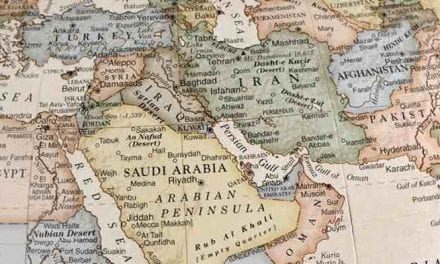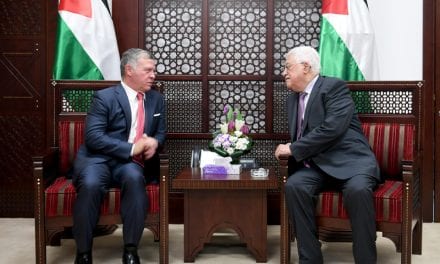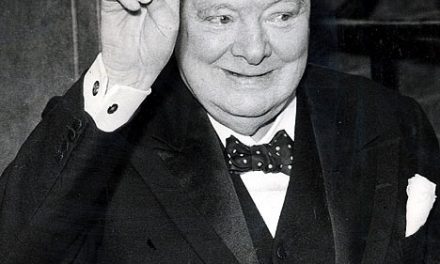by Uzay Bulut, gatestone Institute
On January 20, Turkey launched a military offensive against the U.S.-backed Kurdish forces in the Afrin district of northern Syria. Ironically code-named “Operation Olive Branch,” the offensive was proudly described by Turkish Parliament Speaker Ismail Kahraman as “jihad,” a holy war, without which “there can be no progress.”
Parroting this sentiment, both pro- and anti-government mainstream media outlets in Turkey endorsed the Afrin invasion, using similar jihadist slogans. One newspaper that did not do so was the Turkish Cypriot daily newspaper Afrika, which headlined its coverage of the offensive by comparing it to Turkey’s 1974 invasion of Cyprus, which it called a “peace operation.”
In a column criticizing Turkey’s invasions in the region, the owner and editor of Afrika, Şener Levent, wrote:
“Turkey comes up with such egregious names for its war operations. The one on Cyprus was called a ‘peace operation.’ The one in Syria is now ‘the olive branch operation.’ We did see the peace operation. It was bombs and not flowers of peace that rained from jets. Your heroic pilot even bombed a mental hospital in Nicosia. I saw a dead body trapped between the two floors of a hotel bombed in Maraş [the Cypriot town of Varosha]. Was that the symbol of the peace operation? Captives who were executed by firing squads… Women who were raped… And a soldier who cut the ears off his victims… Those were the symbols of peace, right?
“Now it is the ‘olive branch operation.’ But from the skies, seeds of death and not olive beans are raining on Afrin.”
Outraged by these words, Turkish President Recep Tayyip Erdoğan attacked Afrika as “a shabby newspaper in northern Cyprus,” and called on his “brothers from northern Cyprus… to give the required response.”
The following day, on January 22, Afrika reported that a social media campaign was launched to spur protests outside of the building where the newspaper is located.
“The mayor of Büyükkonuk [the Cypriot village of Komi Kebir] came with the entire municipal staff. The Black Sea Cultural Association made an announcement, saying ‘The chieftain [Erdogan] has responded… our brothers… should give them the required response.'”
The journalists of Afrika held their ground, however, writing:
“You call [the Afrin offensive] conquest; we call it invasion. You call for war and we call for peace. Do you expect us to applaud the bloodshed? Do not wait in vain. Your culture of lynching cannot surpass our Cypriot culture.”
Nevertheless, the protests quickly turned violent. Some attacked the building, while others cheered them on, and removed and destroyed the newspaper’s sign and replaced it with a Turkish flag. They then raided and plundered the offices inside. In a video of the incident, one employee is heard saying:
“We are trying to protect ourselves, since the police are not intervening. All the windows are being broken and the police just waits and watches idly. Our newspaper is being surrounded by a group of fascists.”
With a headline that read, “They Came to Kill − the Order Came from a High Position [Erdoğan],” Afrika described the incident as follows:
“Under the eyes of the police, they attacked us with stones like pieces of rocks. They did not leave any window or door unbroken. They climbed a flagpole in front of the building and barged in through the balcony. A massacre was stopped at the last minute through the intervention of a few self-sacrificing policemen.”
Neither Afrika nor its publisher, Levent, are strangers to pressure and harassment at the hands of the Turkish regime. According to a 2003 New York Times report:
“Levent has lost count of the fusillade of lawsuits pending against him. ‘I think there are more than 100 cases now, in civilian and in military courts,’ he said.
“He has been jailed twice and received death threats. His equipment has been confiscated, and his printing plant has been bombed. All of this has failed to silence Afrika. If anything, it has steeled Mr. Levent and his two brothers, who help him run the independent newspaper with a staff of 20.”
Levent told the Times: “You can live a normal life here if you keep quiet, if you don’t tell the truth that we live under Turkish occupation, that much of our territory is a military zone where we can’t go.”
Turkey became a member of NATO in 1952. Twenty-two years later, in 1974, the Turkish military launched a brutal invasion of Cyprus, a virtually defenseless country that had no air force, no navy and no army, other than a small national guard.
Ignoring all calls from the United Nations, including a UN ceasefire, the Turkish army proceeded to kill at least 5,000 Greek Cypriots, arrested and placed thousands in concentration camps, and raped Greek Cypriot women of all ages from 12 to 71 according to the European Commission of Human Rights. They also destroyed many churches and turned others into mosques, stables and military depots, among other things, in an attempt to wipe out the island’s historic Hellenic and Christian identity through the destruction of its cultural heritage.
The Turkish army brutalized and terrorized at least 170,000 indigenous Greek Cypriots into fleeing to the free, southern part of the island, seized their properties, and replaced them with illegal settlers from Turkey. That is how Ankara forcibly created a Turkish majority in the northern part of the island, backed by the soldiers it continues to deploy there.
Turkey still occupies 38% of the territory of the Republic of Cyprus, after it ethnically cleansed the Greek Cypriot population. The occupied territory has thus been transformed into a Turkish province in all but name.
In their 2009 article, “Gender and Genocide: Armenian and Greek Women Finding Positive Meaning in the Horror,” scholars Artemis Pippinelli and Ani Kalayjian write:
“40,000 Turkish troops remain in Cyprus as a presence that prevents securing the human rights of Greek Cypriots. Turkey has been found guilty of mass violations of human rights by the European Commission and the Court of Human Rights, including the right to life, the right to property, liberty, and security of person, freedom of thought, conscience, and religion, and the prohibition of discrimination.”
Turkey nevertheless continues to refer to the events of 1974 — which included mass murder, torture, abduction and rape, and which turned tens of thousands of Cypriots into refugees in their own homeland — as a “peace operation.” It also continues to try to silence anyone who dares to criticize the invasion and its crimes.
Even George Orwell might be shocked at the level of Turkey’s “doublethink” and “newspeak.”
Uzay Bulut is a Turkish journalist born and raised in Turkey. She is presently based in Washington D.C.



















